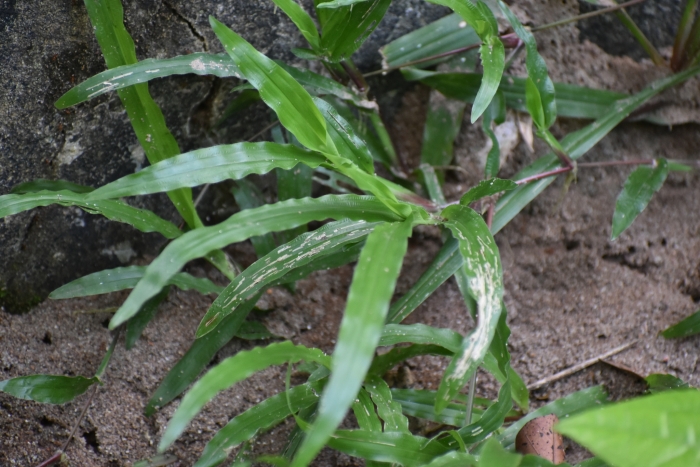Carpet Grass
(Axonopus compressus)
Carpet Grass (Axonopus compressus)
/
/

© Ganesh Mohan T
CC BY-SA 4.0
Image By:
© Ganesh Mohan T
Recorded By:
Copyright:
CC BY-SA 4.0
Copyright Notice:
Photo by: © Ganesh Mohan T | License Type: CC BY-SA 4.0 | License URL: http://creativecommons.org/licenses/by-sa/4.0/ | Uploader: gannu03 | Publisher: iNaturalist |

























Estimated Native Range
Summary
Axonopus compressus, commonly known as carpet grass, is a perennial grass that thrives in tropical and subtropical regions. It is often found in open grasslands, wet savannas, and lightly shaded areas, making it well-suited for moist, low-fertility soils. Carpet grass typically forms a dense, mat-like turf, which can be an advantage for erosion control. It is characterized by its flat, wide leaves and a creeping growth habit, which helps it to quickly cover the ground. Flowering occurs in the summer, producing small, inconspicuous spikelets.
Carpet grass is valued for its ability to establish quickly and provide a low-maintenance groundcover, especially in shaded conditions where other turfgrasses may struggle. It is frequently used in lawns, parks, and as a permanent pasture in regions with appropriate climates. While it does not require high soil fertility, it does prefer consistent moisture and can tolerate partial shade. In cultivation, it is important to manage its growth to prevent it from becoming invasive, especially when planted outside its native range. Axonopus compressus is also known for its tolerance to low mowing heights, making it a popular choice for golf course roughs and utility turf areas.CC BY-SA 4.0
Carpet grass is valued for its ability to establish quickly and provide a low-maintenance groundcover, especially in shaded conditions where other turfgrasses may struggle. It is frequently used in lawns, parks, and as a permanent pasture in regions with appropriate climates. While it does not require high soil fertility, it does prefer consistent moisture and can tolerate partial shade. In cultivation, it is important to manage its growth to prevent it from becoming invasive, especially when planted outside its native range. Axonopus compressus is also known for its tolerance to low mowing heights, making it a popular choice for golf course roughs and utility turf areas.CC BY-SA 4.0
Plant Description
- Plant Type: Grass
- Height: 0.5-1.5 feet
- Width: 1-2 feet
- Growth Rate: Slow, Moderate
- Flower Color: N/A
- Flowering Season: Spring, Summer, Fall
- Leaf Retention: Evergreen
Growth Requirements
- Sun: Full Sun, Part Shade
- Water: Medium, High
- Drainage: Fast, Medium, Slow
Common Uses
Erosion Control, Low Maintenance
Natural Habitat
Open grasslands, wet savannas, and lightly shaded areas
Other Names
Common Names: Broadleaf Carpet Grass, Lawn Grass, Dorrington Grass, Louisiana Grass, Blanket Grass, Carpet Grass, Ditan Cao
Scientific Names: , Axonopus compressus, ? platycaulis, Agrostis compressa, Agrostis compressus, Anastrophus compressus, Anastrophus compressus, Anastrophus platicaulon, Anastrophus platycaulis, Anastrophus platycaulis
GBIF Accepted Name: